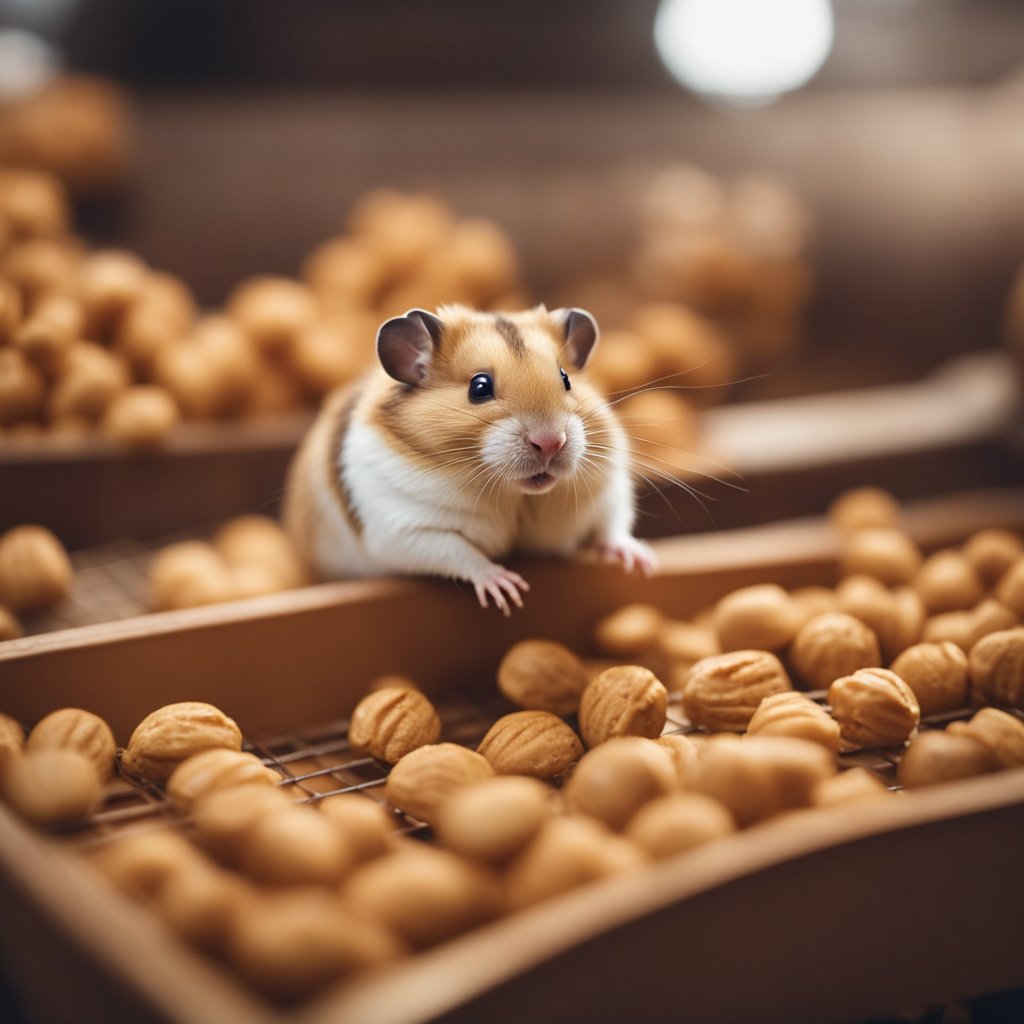Can Hamsters Have Peanut Butter? A Guide to Feeding Your Pet Hamster Safely
Hamsters make great pets, and as a responsible pet owner, you want to ensure they get a balanced and healthy diet. You may be wondering if you can give your hamster peanut butter as a treat. Peanut butter is a popular food item for people, and it’s natural to want to share it with your furry friend. In this article, we will explore whether hamsters can have peanut butter and what you need to know before feeding it to them.
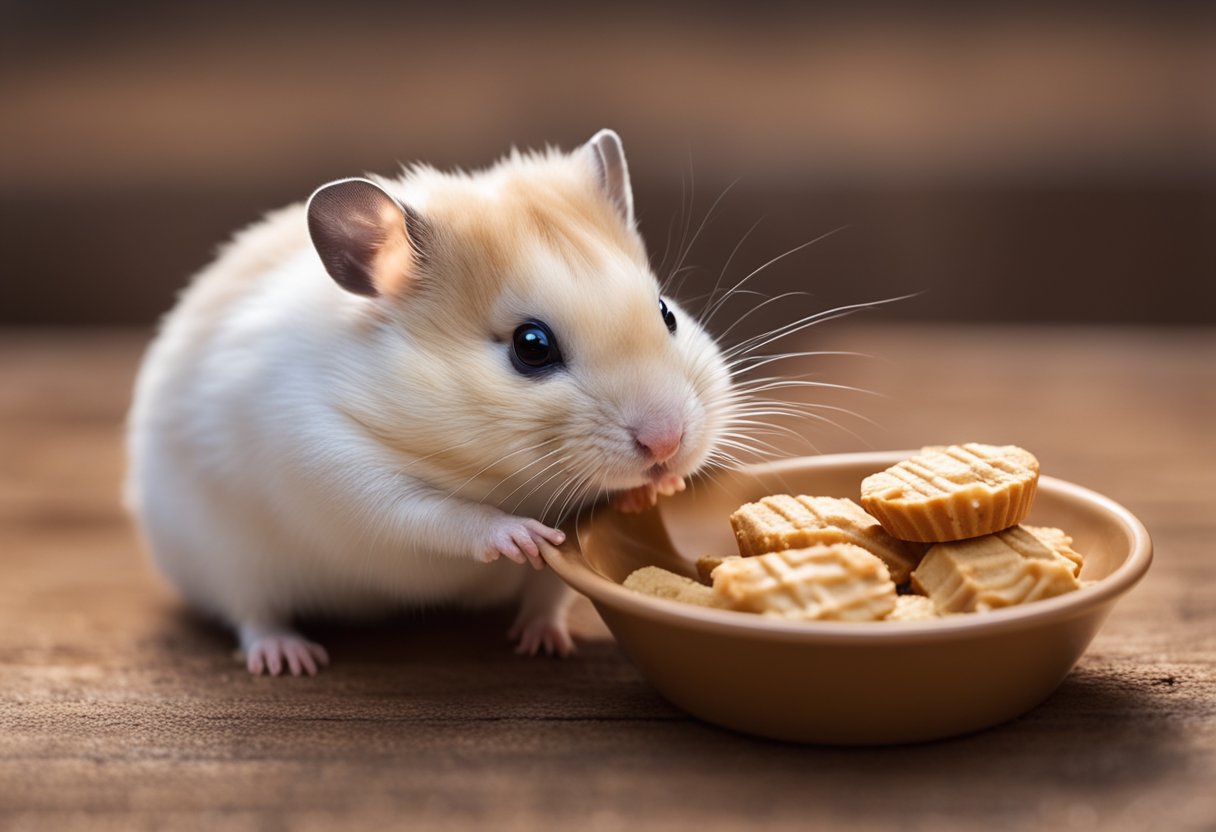
Nutritional Considerations for Hamsters
Hamsters require a balanced diet that includes protein, fiber, vitamins, and minerals. They typically eat seeds, nuts, fruits, vegetables, and insects in the wild. When feeding your hamster, it’s important to consider their nutritional needs and avoid foods that can cause health problems. Peanut butter is high in protein, fat, and sugars, and it’s essential to understand how it can impact your hamster’s diet.
Feeding Peanut Butter to Hamsters
While hamsters can eat peanut butter, it should only be given as an occasional treat. Too much peanut butter can cause health problems like obesity, diabetes, and dental issues. When feeding your hamster peanut butter, it’s crucial to choose natural, organic options that don’t include any added sugars, salts, or preservatives. You can also mix peanut butter with other healthy foods like carrots or celery to make it more enjoyable for your hamster.
Key Takeaways
- Hamsters can eat peanut butter, but it should only be given as an occasional treat.
- Peanut butter is high in protein, fat, and sugars, and it can cause health problems if given in excess.
- When feeding your hamster peanut butter, it’s essential to choose natural, organic options that don’t include any added sugars, salts, or preservatives.
Nutritional Considerations for Hamsters
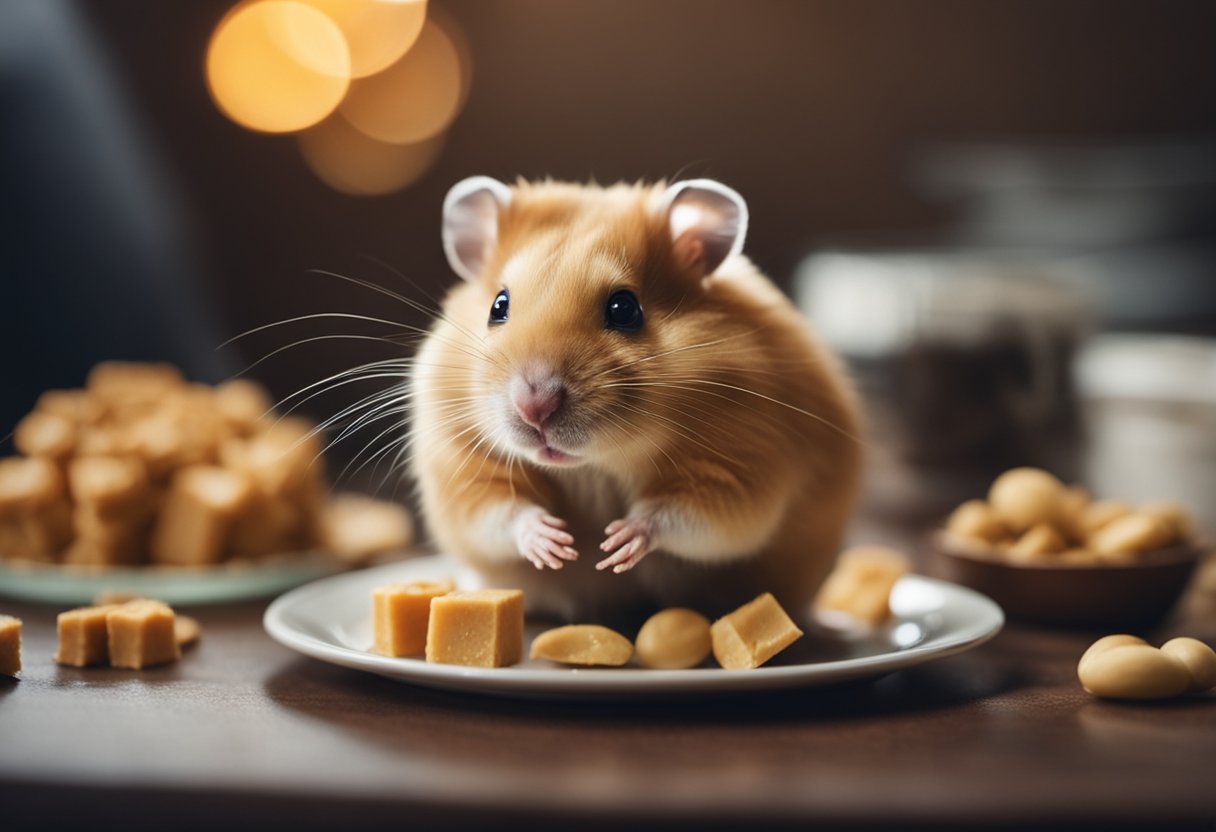
Peanut Butter Composition
Peanut butter is a popular food item that is enjoyed by humans all over the world. It is made from roasted peanuts that are ground into a paste. Peanut butter is high in protein, fat, and sugar. It also contains vitamins and minerals like vitamin E, magnesium, and potassium.
When it comes to feeding peanut butter to your hamster, there are a few things to keep in mind. First, peanut butter can be high in fat and sugar, which can contribute to weight gain and obesity in hamsters. Second, some peanut butter products may contain xylitol, a sugar substitute that is toxic to hamsters. Therefore, it is important to read the label carefully before feeding peanut butter to your hamster.
Hamster Dietary Needs
Hamsters have specific dietary needs that must be met in order to maintain good health. They require a diet that is high in protein and fiber, with moderate amounts of fat and carbohydrates. Hamsters also need fresh water available at all times.
When choosing food for your hamster, it is important to select a high-quality hamster food that is specifically formulated for their dietary needs. This will ensure that your hamster is getting all of the nutrients they need to stay healthy.
In addition to their regular diet, hamsters can also enjoy occasional treats like fresh fruits and vegetables, nuts, and seeds. However, it is important to feed these treats in moderation to prevent weight gain and other health issues.
Overall, while peanut butter can be a tasty treat for your hamster, it should be fed in moderation and only as part of a well-balanced diet. Be sure to read the label carefully and avoid any products that contain xylitol.
Feeding Peanut Butter to Hamsters
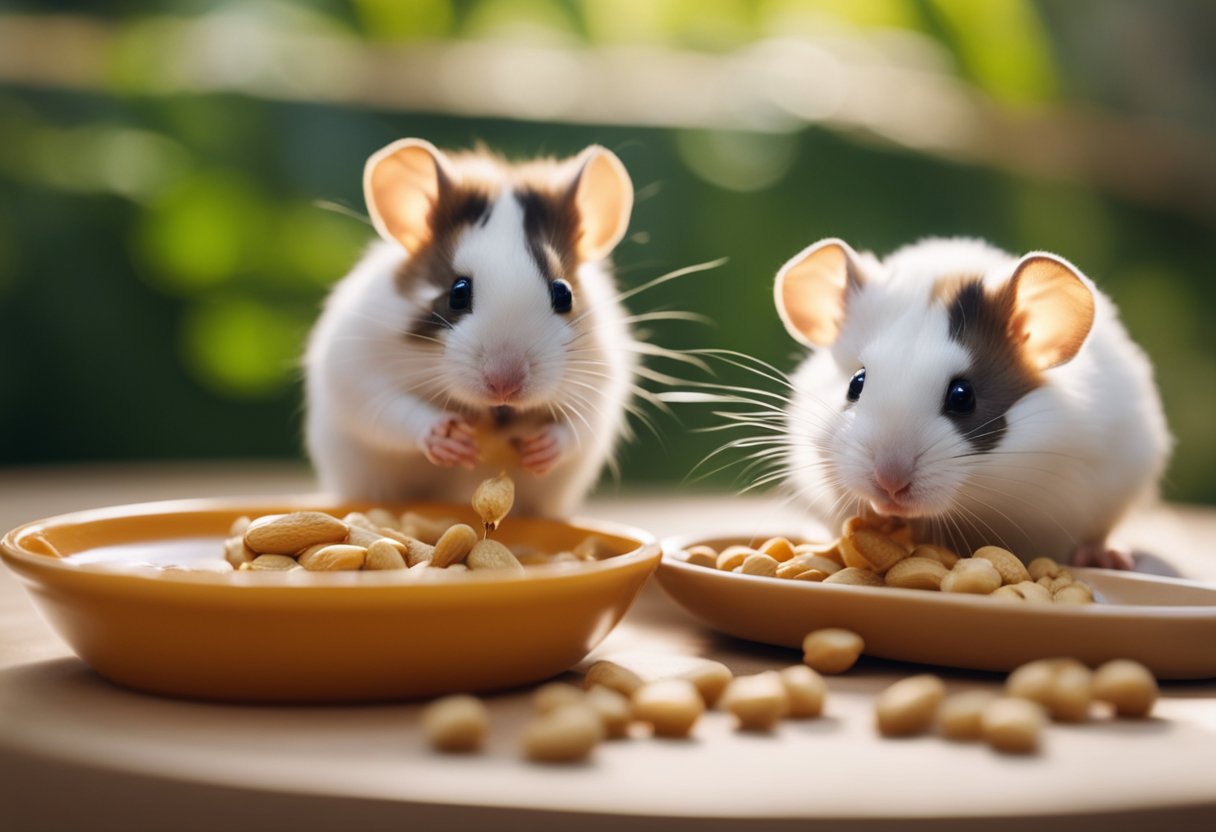
If you’re a hamster owner, you may be curious if you can feed your pet peanut butter. While peanut butter is not toxic to hamsters, there are some things you should consider before adding it to their diet. In this section, we’ll discuss the potential health benefits, risks, precautions, and recommended serving size when feeding peanut butter to your hamster.
Potential Health Benefits
Peanut butter is high in protein, which is essential for hamsters to maintain good health. It also contains healthy fats that can help keep your hamster’s fur shiny and soft. Additionally, peanut butter is a good source of vitamin E, which is important for maintaining a healthy immune system.
Risks and Precautions
While there are some potential health benefits to feeding peanut butter to your hamster, there are also some risks and precautions to consider. Peanut butter is high in fat and calories, which can contribute to weight gain and obesity in hamsters. Obesity can lead to a variety of health problems, including heart disease and high blood pressure.
Furthermore, some hamsters may be allergic to peanuts or other nuts. If you’re unsure if your hamster has a nut allergy, it’s best to introduce peanut butter in small amounts and monitor your hamster for any signs of an allergic reaction, such as itching, swelling, or difficulty breathing.
Recommended Serving Size
If you decide to feed your hamster peanut butter, it’s important to do so in moderation. The recommended serving size for peanut butter is no more than a pea-sized amount once or twice a week. You can mix the peanut butter with other foods, such as carrots, to make it more appealing to your hamster.
In conclusion, while peanut butter can be a tasty treat for your hamster, it should be fed in moderation and with caution. It’s important to monitor your hamster for any signs of an allergic reaction or weight gain. By following these guidelines, you can safely add peanut butter to your hamster’s diet.
Resources
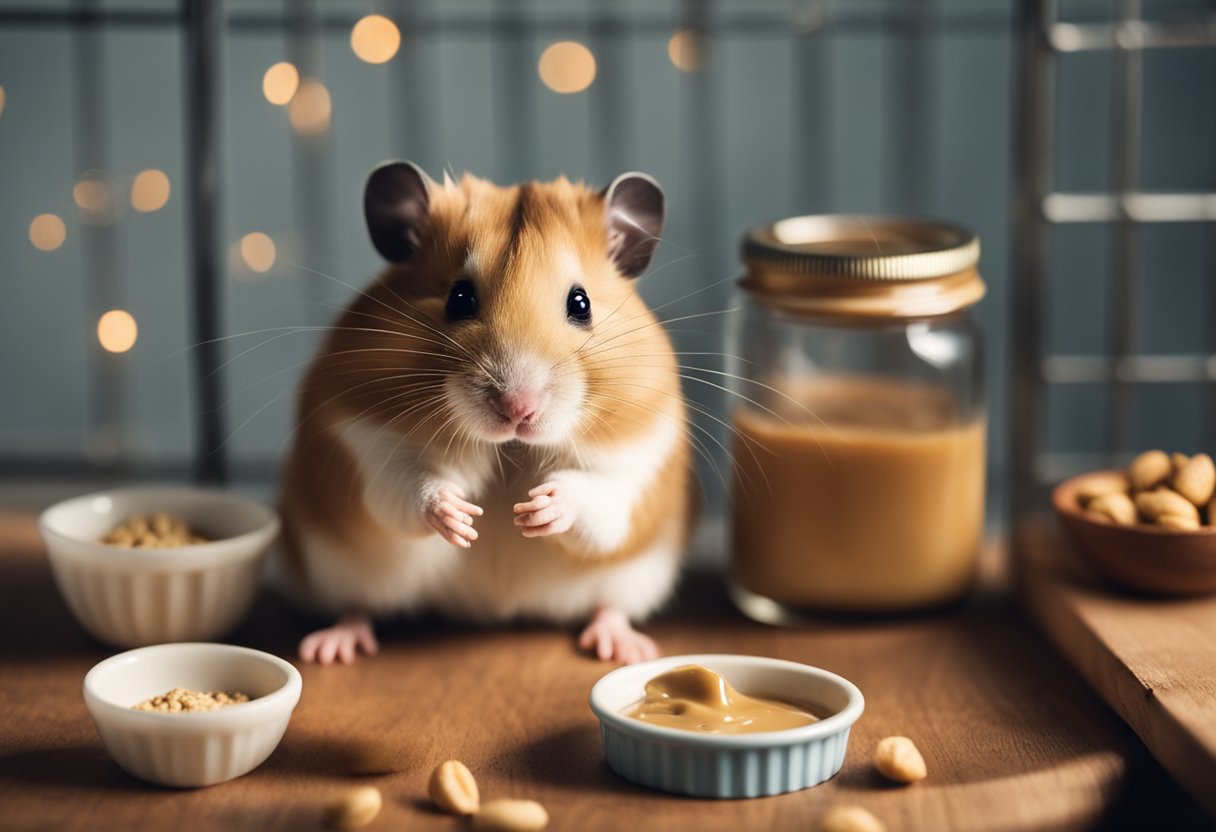
If you’re interested in learning more about whether hamsters can have peanut butter, there are many resources available online that can help answer your questions. Here are a few that you might find helpful:
- Pet Keen: This article provides a brief overview of whether hamsters can eat peanut butter, as well as some tips for feeding it to them safely. It also includes information about the nutritional benefits and potential risks of peanut butter for hamsters.
- Hepper: This article takes a more detailed look at the pros and cons of feeding peanut butter to hamsters. It includes information about the nutritional content of peanut butter, as well as some of the potential health risks associated with overfeeding it to your pet.
- Chef’s Resource: This article provides a balanced perspective on whether hamsters can eat peanut butter, weighing the potential benefits against the risks. It includes information about the nutritional content of peanut butter, as well as some tips for feeding it to your pet safely.
In addition to these resources, you may also want to consult with your veterinarian or a professional animal nutritionist to get more personalized advice about whether peanut butter is a good choice for your hamster’s diet. They can help you evaluate your pet’s individual needs and recommend the best course of action for keeping them healthy and happy.
Conclusion
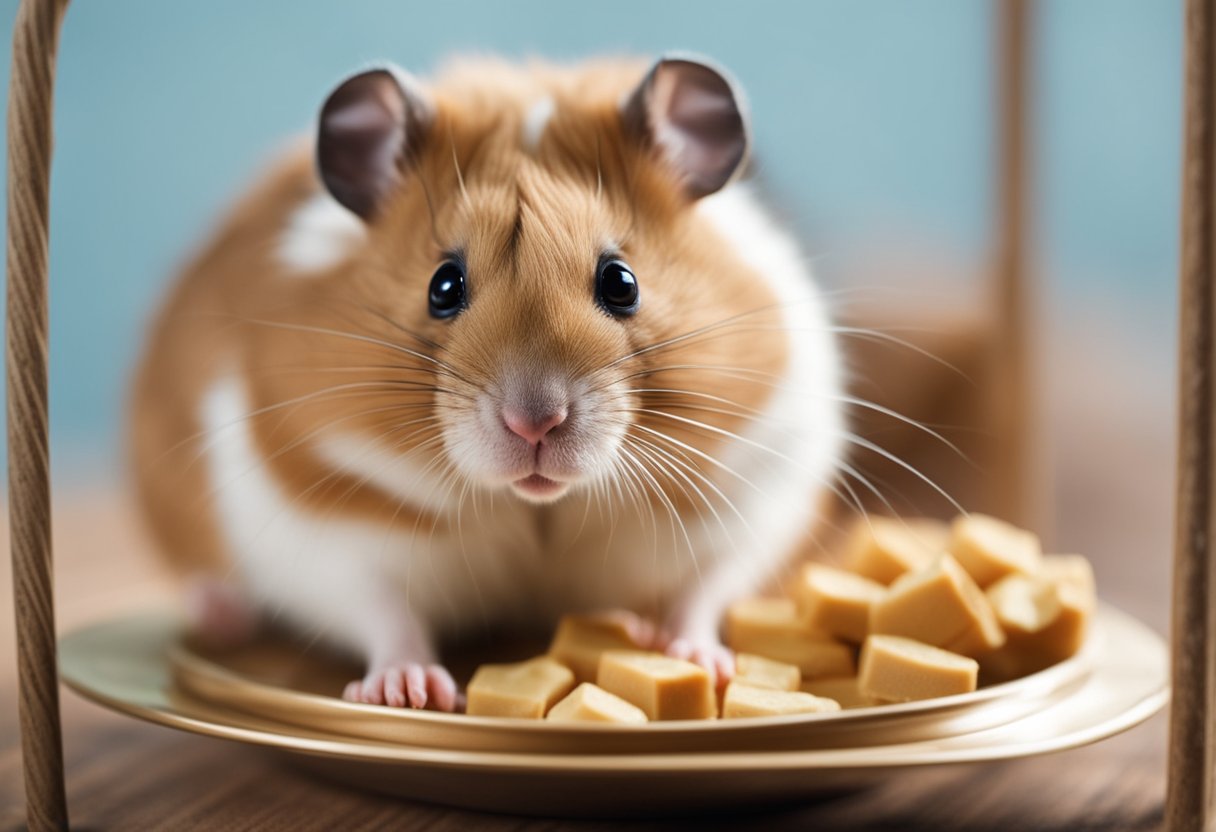
In conclusion, hamsters can have peanut butter in moderation as an occasional treat. Peanut butter is high in protein, but it also contains high levels of fat and sugars, which can lead to weight gain and other health problems if overfed. Therefore, it is recommended to feed your hamster peanut butter in small amounts and alongside a mix of other healthy food items.
It is important to note that not all hamsters may react well to peanut butter. Some hamsters may have allergies or digestive issues that could be aggravated by peanut butter. Therefore, it is always best to introduce new foods slowly and in small amounts to monitor your hamster’s reaction.
Overall, providing your hamster with a balanced diet that includes a variety of foods is crucial for their health and well-being. Consult with a veterinarian or a knowledgeable pet store employee to ensure that your hamster is receiving the proper nutrition.
Frequently Asked Questions
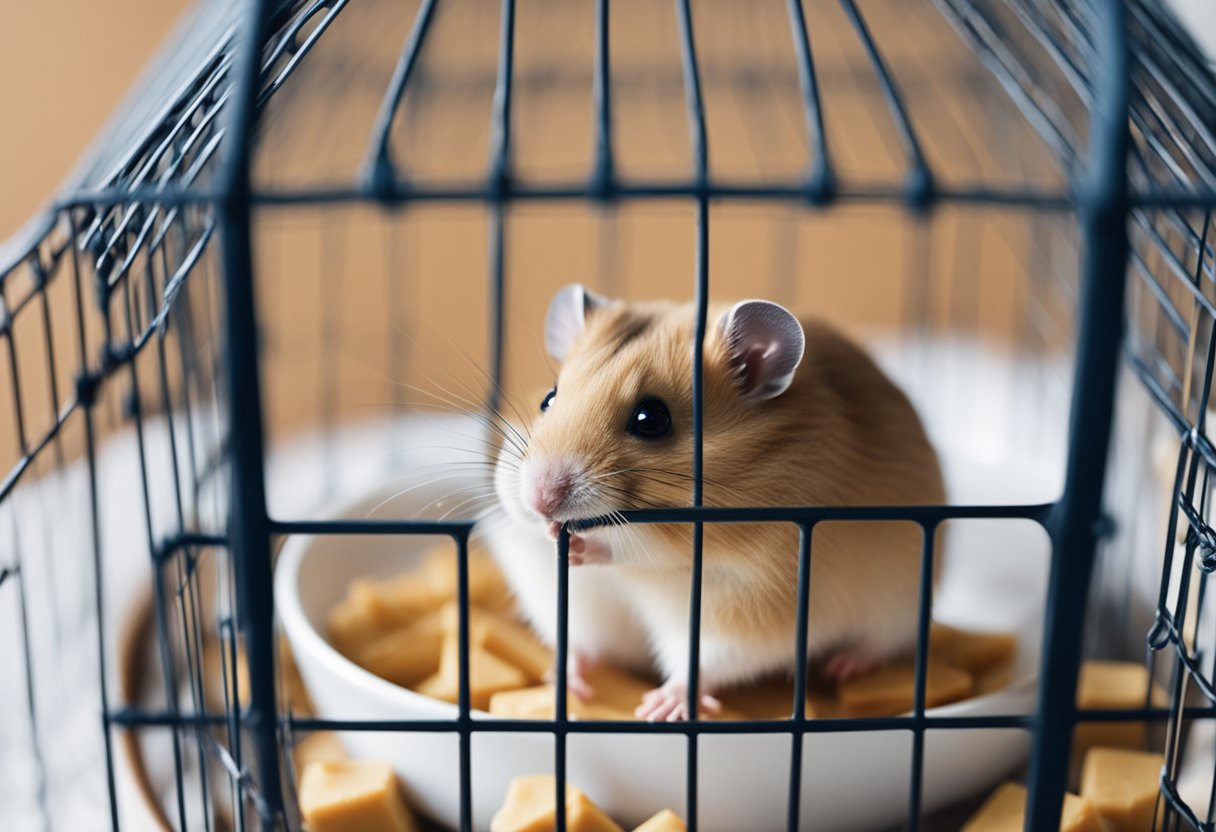
What types of food are safe for hamsters to consume?
Hamsters are omnivorous and can eat a variety of foods. They require a diet that is high in fiber, protein, and low in fat. Some safe food options for hamsters include fresh fruits and vegetables, cooked lean meats, and whole grains. Commercial hamster food can also be a good source of nutrition for your pet.
Are there any human foods that hamsters can eat?
Yes, there are some human foods that hamsters can eat. However, it is important to remember that hamsters have different nutritional needs than humans. Some safe human foods for hamsters include cooked chicken, boiled eggs, and small amounts of fresh fruits and vegetables.
What should never be fed to hamsters?
There are some foods that should never be fed to hamsters. These include chocolate, caffeine, alcohol, and sugary foods. These foods can be toxic to hamsters and can cause serious health problems.
Can hamsters eat cheese safely?
Hamsters can eat cheese in moderation. Cheese is high in fat and should not be a staple of a hamster’s diet. However, small amounts of low-fat cheese can be a tasty treat for your pet.
Is apple skin a suitable snack for hamsters?
Yes, apple skin is a suitable snack for hamsters. Apples are a good source of fiber and vitamins, and the skin contains additional nutrients. However, make sure to remove any seeds or core before feeding your hamster.
How often can hamsters have treats like peanut butter?
Treats like peanut butter should only be given to hamsters in moderation. While small amounts of peanut butter can be safe for hamsters to eat, too much can cause health problems like obesity. It is recommended to limit treats to once or twice a week and to only give small amounts.
